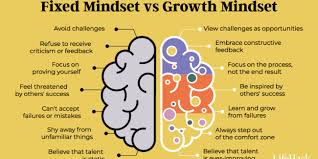How to Stay Focused and Minimize Distractions While Studying
Staying focused while studying can be a real challenge, especially in a world full of distractions—smartphones, social media, notifications, and endless entertainment options. However, improving focus is crucial for effective learning, better memory retention, and academic success. If you often find yourself distracted while studying, this guide will help you stay on track with proven strategies and simple habits.
Understand Why Distractions Happen
Before learning how to avoid distractions, it’s important to know where they come from. Common causes include:
- Digital interruptions (social media, text messages)
- Environmental factors (noise, cluttered space)
- Mental distractions (worry, boredom, fatigue)
- Lack of motivation or clear goals
Once you identify your main sources of distraction, you can tackle them more effectively.
Set a Clear Study Goal
Starting with a vague intention like “I’ll study for a while” invites procrastination. Instead, set a clear, measurable goal, such as:
- “I will complete two chapters in 45 minutes.”
- “I’ll review my biology notes for 30 minutes and then solve 10 questions.”
This helps your brain stay on task because you know exactly what needs to be done and when to stop.
Create a Dedicated Study Space
Your environment plays a huge role in how focused you remain. Designate a quiet and clutter-free spot for studying. Make sure it includes:
- A comfortable chair and desk
- Good lighting
- All necessary materials (books, pens, notebooks)
- Minimal distractions (no TV or loud music)
Avoid studying in bed, as it can make you feel sleepy and less productive.
Turn Off Digital Distractions
Phones and computers can be helpful tools, but they’re also the biggest distractions. To stay focused:
- Put your phone on airplane mode or “Do Not Disturb”
- Use apps like Forest, Cold Turkey, or Freedom to block websites and apps
- Keep social media tabs closed on your computer
- Use your browser’s reading or focus mode for online studying
Use the Pomodoro Technique
This time-management method improves focus and prevents burnout. Here’s how it works:
- Set a timer for 25 minutes and study with full focus.
- Take a 5-minute break.
- Repeat the cycle four times, then take a longer break of 15–30 minutes.
These short bursts of focus help keep your brain engaged and prevent fatigue.
Eliminate Multitasking
Many students believe they can multitask—listening to music, checking texts, and studying all at once. But research shows multitasking lowers productivity and retention. Focus on one task at a time. You’ll complete it faster and remember more.
Use Noise Control Techniques
If you can’t find a quiet place, consider these options:
- Use noise-canceling headphones
- Listen to instrumental or white noise music
- Try focus-enhancing playlists on Spotify or YouTube
Avoid songs with lyrics, as they can pull your attention away from studying.
Take Regular, Purposeful Breaks
Studying non-stop can lead to burnout and reduced focus. Short breaks help refresh your mind. During breaks, avoid checking your phone. Instead, try:
- Stretching or light exercise
- Drinking water or having a healthy snack
- Taking a quick walk
Breaks are important—just make sure they don’t turn into hour-long distractions.
Keep Your Mind Energized
A distracted mind is often a tired mind. Take care of your mental and physical energy by:
- Getting 7–9 hours of sleep every night
- Eating brain-boosting foods like nuts, fruits, and whole grains
- Staying hydrated
- Practicing mindfulness or deep breathing before study sessions
Reward Yourself
Motivation increases when there’s a reward at the end. After completing a task or study session:
- Watch your favorite show
- Eat a treat
- Take a fun break
This positive reinforcement keeps you focused in future sessions too.
Final Thoughts
Staying focused while studying is not about having superhuman discipline. It’s about creating the right environment, using effective techniques, and building small daily habits that train your brain to stay on task. With consistency and a few changes in your study routine, you’ll find it much easier to concentrate and get more done in less time.
By managing distractions, setting goals, and giving your brain the support it needs, you’ll transform the way you study—and the results will follow.


